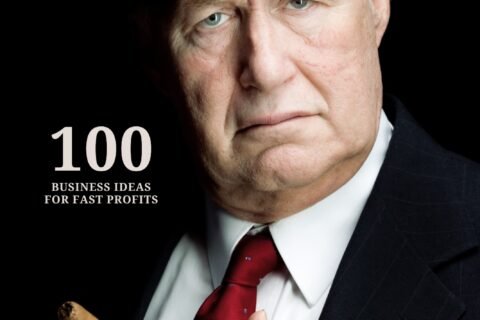The Strategic Imperative of Personal Budgeting
A Framework for Financial Control and Wealth Creation
Effective personal budgeting is not an act of restriction but a strategic framework for financial empowerment. It is the foundational practice that separates reactive spenders from proactive wealth builders. Forgoing a budget is akin to a business operating without financial statements—decisions are made in a vacuum, opportunities are missed, and risks are amplified. This report provides a detailed, authoritative guide to constructing a robust personal budget, implementing precise tracking systems, and adopting a mindset that transforms financial management from a chore into a cornerstone of personal achievement. The objective is to move beyond generic advice and provide a sophisticated, actionable framework for mastering personal cash flow and aligning financial resources with long-term life goals.
Section 1: The Foundational Blueprint: Precision in Financial Data Analysis
The bedrock of any effective budget is a granular and honest assessment of one’s complete financial picture. This initial phase requires more than a casual glance at a bank balance; it demands a forensic accounting of all incoming and outgoing funds. The first step is to meticulously calculate total net income from all sources—salaries, freelance work, side businesses, and investments. For those with variable income, a conservative approach is essential; this involves calculating a rolling three-to-six-month average or, more prudently, budgeting based on the lowest-earning month to ensure stability. The next critical task is a comprehensive audit of all expenditures over a two-to-three-month period by analyzing bank and credit card statements. Expenses must be categorized with precision into three distinct groups: Fixed Expenses (e.g., mortgage/rent, loan payments, insurance), Variable Expenses (e.g., groceries, fuel, utilities), and Discretionary Expenses (e.g., entertainment, dining out, hobbies). A crucial, often-overlooked component is accounting for non-monthly, predictable costs through a mechanism known as a “sinking fund.” [1][2] For an annual expense like a $1,200 insurance premium, one must budget to set aside $100 each month. [3] This transforms large, disruptive payments into manageable, predictable line items, preventing the need to dip into emergency savings or incur debt. [1][4] This rigorous data collection and categorization process provides the unvarnished truth of one’s financial habits, creating the essential data set upon which all future strategic decisions will be based.
Section 2: Strategic Allocation: From Rudimentary Rules to Value-Based Spending
Once a clear financial picture is established, the next phase is strategic allocation, which involves adopting a philosophical approach to how money is deployed. While simple frameworks are useful starting points, true financial mastery requires a more intentional model. The 50/30/20 rule—allocating 50% of after-tax income to needs, 30% to wants, and 20% to savings and debt—offers a balanced, easy-to-implement structure for beginners. [5][6] However, for those seeking maximum control and goal acceleration, Zero-Based Budgeting (ZBB) is superior. [7][8] This method mandates that every dollar of income is assigned a specific purpose, such that Income – (Expenses + Savings + Debt Repayment + Investments) = 0. [7][9] This approach forces proactive decision-making and eliminates mindless spending, making it a powerful tool for aggressive debt reduction or savings accumulation. [8][10] An even more advanced and psychologically resonant strategy is Value-Based Budgeting. [11][12] This method transcends the rigid “needs vs. wants” dichotomy and instead prioritizes spending that aligns with one’s core personal values and long-term fulfillment. [13][14] An individual who deeply values global travel, for instance, might ruthlessly cut spending on dining out and subscriptions—traditionally categorized as “wants”—to aggressively fund their travel goals. [11] This transforms the budget from a document of restriction into a blueprint for a meaningful life, increasing motivation and long-term adherence. [12][14]
Section 3: The Execution and Iteration Loop: Systems for Tracking and Adaptation
A budget is a living document, and its effectiveness is entirely dependent on the system used for execution and review. The choice of tracking method is a critical decision that balances efficiency with psychological engagement. Automated systems, such as budgeting apps (e.g., YNAB, Monarch) that link directly to bank accounts, offer unparalleled convenience and real-time data aggregation. [15][16] They automatically categorize transactions and provide sophisticated analytics, saving significant time. [16][17] However, this automation can sometimes lead to a psychological disconnect, where users are less conscious of their spending decisions. [18] Conversely, manual tracking, whether using a spreadsheet or a simple notebook, forces a “pause point” for every transaction. [19] The physical act of recording an expense fosters a heightened sense of awareness and has been linked to greater financial self-awareness and more mindful consumption habits. [19][20] The optimal approach often involves a hybrid model. Regardless of the tool, a disciplined review cadence is non-negotiable. This should include a brief weekly check-in (10-15 minutes) to categorize transactions and a comprehensive monthly review (30-60 minutes) to analyze spending trends, adjust allocations for the upcoming month, and assess progress toward financial goals. This iterative loop of tracking, analyzing, and adapting is what ensures the budget remains relevant and effective over the long term.
In conclusion, creating and maintaining a personal budget is one of the most impactful strategic decisions an individual can make for their financial health. By moving beyond simplistic notions and adopting a rigorous, data-driven, and value-aligned approach, one can seize control of their financial narrative. This involves a precise accounting of all funds, a strategic allocation based on a chosen philosophy like Zero-Based or Value-Based Budgeting, and a disciplined system of tracking and iteration. This transforms a budget from a static document of limitations into a dynamic tool for building wealth, eliminating debt, and intentionally designing a life of financial security and personal fulfillment.



